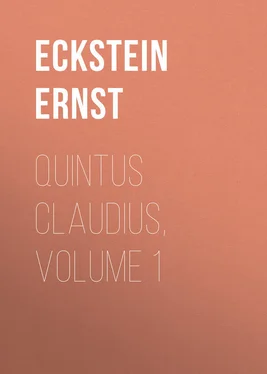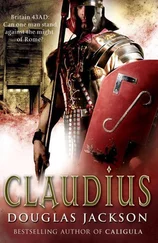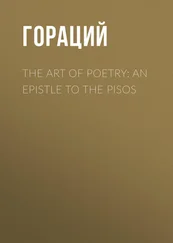Ernst Eckstein - Quintus Claudius, Volume 1
Здесь есть возможность читать онлайн «Ernst Eckstein - Quintus Claudius, Volume 1» — ознакомительный отрывок электронной книги совершенно бесплатно, а после прочтения отрывка купить полную версию. В некоторых случаях можно слушать аудио, скачать через торрент в формате fb2 и присутствует краткое содержание. Жанр: foreign_antique, foreign_prose, на английском языке. Описание произведения, (предисловие) а так же отзывы посетителей доступны на портале библиотеки ЛибКат.
- Название:Quintus Claudius, Volume 1
- Автор:
- Жанр:
- Год:неизвестен
- ISBN:нет данных
- Рейтинг книги:4 / 5. Голосов: 1
-
Избранное:Добавить в избранное
- Отзывы:
-
Ваша оценка:
- 80
- 1
- 2
- 3
- 4
- 5
Quintus Claudius, Volume 1: краткое содержание, описание и аннотация
Предлагаем к чтению аннотацию, описание, краткое содержание или предисловие (зависит от того, что написал сам автор книги «Quintus Claudius, Volume 1»). Если вы не нашли необходимую информацию о книге — напишите в комментариях, мы постараемся отыскать её.
Quintus Claudius, Volume 1 — читать онлайн ознакомительный отрывок
Ниже представлен текст книги, разбитый по страницам. Система сохранения места последней прочитанной страницы, позволяет с удобством читать онлайн бесплатно книгу «Quintus Claudius, Volume 1», без необходимости каждый раз заново искать на чём Вы остановились. Поставьте закладку, и сможете в любой момент перейти на страницу, на которой закончили чтение.
Интервал:
Закладка:
The respectable Herodianus too, against his custom, was silent. What could be so absorbing to that simple and garrulous nature? From time to time he frowned and stared at the ceiling, moving his lips in silent speech like a priest of the Pythian oracle. The honey, generally his favorite dainty – he left untouched; the egg he was about to empty with a spoon 123 123 The use of spoons was not so general in Rome as with us, but was certainly customary for eating eggs in good society.
broke under his fingers. Aurelius was on the point of taking the matter seriously, when the mystery found a natural solution. When, presently, Blepyrus appeared to announce that it was time to start, the ponderous ponderer rose, went to the door, and began to exclaim with terrible pathos a valedictory poem of his own composition. It was based on the model of the world-renowned Hymenaeus 124 124 Hymenaeus. A well-known poem by Catullus; the burden is: ” O Hymen, Hymenae! " (Carmen 61, Collis o Heliconis .)
of Catullus; 125 125 Caius (or Quintus) Valerius Catullus was a native of Verona (B.C. 77) and died at the age of thirty. His works were most popular at the period of our story. Martial frequently compares himself with Catullus as a recognized classic, and in one passage hopes that he may one day be esteemed as second only to Catullus. Herodianus takes one of Catullus’s poems as a model, just as a worthy citizen of Germany, who wished to essay lyric poetry, might copy Schiller.
and its climax was the most extravagant refrain, that the Muse of occasional verse ever hatched in mortal brain.
For a few minutes the party listened in respectful silence to the cadences of this solemn effusion; but as it went on and on, apparently endless, Lucilia, who from the first had had great difficulty in keeping countenance, broke into a fit of laughter, and Aurelius good-naturedly put a stop to the freedman’s recitation.
“I mean no offence, my excellent Herodianus; but though poetry is said to be the mirror of reality, it must not interfere too much with the progress of real events. Twelve times already have you resolutely asserted: ‘Far must we wander, far from hence!’ but our feet are still rooted to the spot. You may give us the rest of your poem on board the vessel, but for the present make way and take this ring as the prize for your effusion.”
Herodianus, who had at first been half inclined to take the interruption in ill-part, felt himself fully indemnified by his master’s gift, but his gaze lingered for a while in silent protest on Lucilia. However, he presently joined the rest of the party, who were mounting their horses or settling themselves in litters, and soon they were all fairly in motion.
They went down the hill in a long file. Baiae, now in full sunshine, seemed to nestle in a golden shell; the sea was as smooth as a mirror, and the clear atmosphere promised a prosperous voyage. They soon reached the stone quay, where the motley crowd of the harbor was already at high tide of noise and bustle. There lay the proud trireme before their surprised eyes, gaily dressed out like a bride waiting for the bridegroom. Long garlands of flowers floated from the spars, tied with purple knots and blue streamers; magnificent carpets from Alexandria and Massilia hung from the poop, and the crew were all dressed in holiday garments. When they had got into the boats and were fast approaching the vessel, strains of music were heard greeting the visitors. Claudia colored deeply; she recognized her own song – that impassioned address to the Spring, which she had sung the first evening in the peristyle.
In ten minutes the Batavia had weighed anchor and was being rowed in majestic style past the quays and mole. Quintus, Claudia and Lucilia leaned silently over the side, while Aurelius sat under the awning with Octavia, talking of Rome. Beautiful Baiae sank farther and farther into the background with all its palaces and temples. Still, above the trees, a corner of the snug villa they had left was visible, and to the left Domitia’s palace. Then the vessel shifted its course, and the shining speck grew smaller and smaller till it was lost to sight.
Claudia wiped away a stealing tear, while Lucilia in a clear, ringing voice shouted across the waters:
“Farewell, lovely Baiae!”
CHAPTER VI
The house of Titus Claudius Mucianus, the high-priest of Jupiter, stood at no great distance from the precipitous Capitoline Hill, 126 126 The capitoline hill. Mons Capitolinus , north of the Palatine and southwest of the Quirinal. Tarquinius Priscus erected on its summit the Capitolium, that is the temple of Jupiter Optimus Maximus, Juno and Minerva.
looking over the Forum Romanum 127 127 Forum Romanum. The Roman forum par excellence, at the foot of the Capitoline and Palatine Hills, was the centre of public life even in the days of the republic.
and the Sacred Way. 128 128 The sacred way ( Sacra Via ) divided the real Sacra Via , which led from the Capitol to the Arch of Titus, and the Summa Sacra Via (the upper sacred street) that extended from the Arch of Titus to the Flavian Amphitheatre. Hor. Sat. I, 9 ( Ibam forte Via Sacra, sicut meus est mos. ) It was the most frequented street in Rome. The ancient pavement exists at the present day. “Via” was the name of the large principal streets, as it still is at the present time in Italy.
Simple and yet magnificent, it showed in every detail the stamp of that quiet, self-sufficing and confident wealth, that ease of distinction, which is so unattainable to the parvenu .
It was now October. The sun was just appearing above the horizon. There was a motley turmoil in the house of the Flamen; the vast atrium positively swarmed with men. Most of these were professional morning visitors – waiters in the ante-chamber – known also from the gala dress in which they were expected to appear, as “Toga-wearers;” the poor relations of the house, clients and protégés. 129 129 Clients and protégés. These were the clients mentioned in note 99. Juvenal ( Sat. 5) and especially Martial, in various passages, speak of their pitiable situation, the contempt in which they were held and the ill-treatment they had to endure even from their patrons’ slaves. (See Friedlander I, 247 to 252.) The usual visiting-hour was just after sunrise.
Still, there were among them not a few persons of distinction, members of the senate and upper-class, court officials and magistrates. It was a scene of indescribable variety and bustle. The world of Rome in miniature. Petitioners from every point of the compass eagerly watched the slaves, on whom their admission depended. Rich farmers, who desired to bring a private offering to Jupiter Capitolinus, sat open-mouthed on the cushioned marble seats, gaping at the handsomely-dressed servants or the splendid wall-paintings and statues. Young knights from the provinces, whose ambition it was to be Tribune of a legion, 130 130 Tribune of a legion. Augustus appointed the so-called legati or praefecti legionum commanders of the legions. The legatus thus corresponded with our colonel. The next in rank to the legati were the tribunes (corresponding to our majors) who, however, with special qualifications, might undertake the command of a legion. Usually the tribunes did not have the reputation of possessing remarkable military ability, as the sons of the knights and senators began their military career with this dignity. According to their age and experience, the tribunes were second lieutenants. The men next in rank to the tribunes were the centurions, the really experienced officers, who were held in high esteem on account of their superior knowledge. At the time of our story the pressure of the young men for tribuneships was so extraordinary, that the places actually at disposal were not nearly sufficient to supply the demand. The Emperor Claudius had therefore created supernumerary tribuneships ( supra numerum, imaginariae militiae genus. Suet. Claud. 25) a brevet-rank, which without claiming the performance of any duty, flattered the vanity.
or to obtain some other honorable appointment, and who hoped for the high-priest’s protection, gazed with deep admiration at the endless series of ancestral images 131 131 Ancestral Images. Statues of ancestors, modelled in wax ( imagines majorum ) formed one of the principal ornaments of the atrium in the houses of aristocratic Romans. The ancestors here mentioned of our (imaginary) Titus Claudius Mucianus are all historical characters.
in wax, which adorned the hall in shrines of ebony.
Интервал:
Закладка:
Похожие книги на «Quintus Claudius, Volume 1»
Представляем Вашему вниманию похожие книги на «Quintus Claudius, Volume 1» списком для выбора. Мы отобрали схожую по названию и смыслу литературу в надежде предоставить читателям больше вариантов отыскать новые, интересные, ещё непрочитанные произведения.
Обсуждение, отзывы о книге «Quintus Claudius, Volume 1» и просто собственные мнения читателей. Оставьте ваши комментарии, напишите, что Вы думаете о произведении, его смысле или главных героях. Укажите что конкретно понравилось, а что нет, и почему Вы так считаете.












